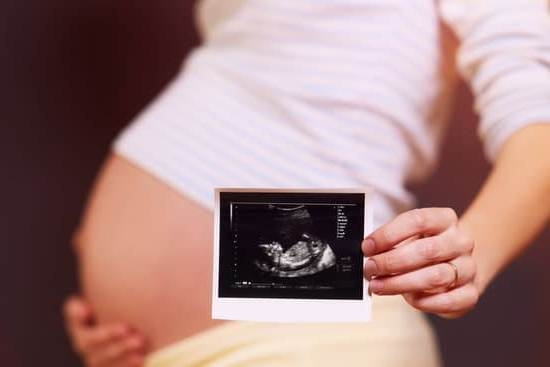How soon can blood tests detect pregnancy? The timely detection of pregnancy is crucial for many women, whether they are trying to conceive or not. Blood tests are one reliable method that can accurately detect pregnancy early on. Understanding the importance of early detection and the various methods available is essential for women who are curious about their pregnancy status.
When it comes to blood tests for pregnancy, they work by detecting the hormone hCG in the bloodstream. This hormone is produced by the developing placenta shortly after a fertilized egg attaches to the uterine lining. As blood circulates through the body, hCG can be detected in a blood sample, indicating the presence of a pregnancy.
There are different types of blood tests available, each with varying accuracy levels and detection times. Some tests can detect pregnancy as early as 7-12 days after conception, while others may require a longer wait. Factors such as the sensitivity of the test and timing can influence how soon a blood test can accurately detect pregnancy. Understanding these factors is important for women seeking confirmation of their pregnancy status.
The Science Behind Blood Tests for Pregnancy
The human chorionic gonadotropin (hCG) hormone is produced by the placenta shortly after a fertilized egg attaches to the uterine lining. This hormone can be detected in blood or urine and is a key indicator of pregnancy.
When it comes to blood tests for pregnancy, they work by measuring the levels of hCG in a woman’s bloodstream. These tests are highly accurate and can detect pregnancy earlier than urine tests, providing crucial information to women who suspect they may be pregnant.
Blood tests for pregnancy can detect hCG levels as early as 8-10 days after ovulation. This is much earlier than urine tests, which typically require a missed period before providing accurate results. There are two types of blood tests commonly used for pregnancy detection: quantitative hCG test and qualitative hCG test. The quantitative test measures the exact amount of hCG in the blood, while the qualitative test simply confirms if hCG is present or not.
One advantage of blood tests for pregnancy is their high sensitivity compared to urine tests. Blood tests can detect lower levels of hCG, making them more reliable in confirming early pregnancies. Additionally, blood tests can also provide information on the actual amount of hCG present, which can be useful in monitoring the progression of the pregnancy. Overall, blood tests offer an excellent option for women who want to know how soon they can detect pregnancy accurately and reliably.
| Aspect | Information |
|---|---|
| Detection time | As early as 8-10 days after ovulation |
| Types of Tests | Quantitative hCG test and Qualitative hCG test |
| Sensitivity | Blood tests have higher sensitivity compared to urine tests |
Timing of Blood Tests
Blood tests for pregnancy are considered one of the most accurate methods for early detection. When it comes to determining how soon a blood test can detect pregnancy, it is essential to understand the different types of blood tests available and their respective timelines. One of the most common blood tests used to detect pregnancy is the quantitative hCG blood test. This test measures the exact amount of the hormone human chorionic gonadotropin (hCG) in the bloodstream.
A quantitative hCG blood test can accurately detect pregnancy as early as 7-12 days after conception, which is typically around 1-2 weeks after a missed period. This type of blood test is highly sensitive and can pick up on very low levels of hCG, making it an excellent option for early detection.
On the other hand, a qualitative hCG blood test provides a simple yes or no answer regarding pregnancy but may not be as sensitive as a quantitative test. It usually detects pregnancy shortly after a missed period, similar to urine pregnancy tests.
In addition to these types of blood tests, there are also combination tests that measure both hCG levels and progesterone levels in the bloodstream. These combination tests can provide more comprehensive information about early pregnancy and viability. Overall, when considering how soon blood tests can detect pregnancy, it is important to choose the right type of test based on timing and sensitivity to ensure accurate results.
Sensitivity of Blood Tests
Understanding the Sensitivity of Blood Tests
When it comes to detecting pregnancy, the sensitivity of a test refers to its ability to accurately detect lower levels of hCG (human chorionic gonadotropin) hormone in the bloodstream. Blood tests are known for their high sensitivity levels compared to urine pregnancy tests. This is because blood tests can detect hCG within days after conception, even before a missed period, making them a reliable method for early detection.
Comparison to Urine Pregnancy Tests
Urine pregnancy tests are commonly used for at-home testing due to their convenience and accessibility. However, they are less sensitive than blood tests and may only detect hCG levels about a week after a missed period. On the other hand, blood tests can detect hCG as early as 6-8 days after ovulation or fertilization, providing women with an earlier confirmation of pregnancy.
Importance of Sensitivity Levels
The higher sensitivity level of blood tests makes them particularly valuable for women who are trying to conceive and want early confirmation of pregnancy. Additionally, blood tests are often recommended by healthcare providers in cases where there is a need for more precise information about hCG levels, such as in monitoring early pregnancy or evaluating potential complications.
Overall, understanding the differences in sensitivity between blood tests and urine pregnancy tests can help individuals make informed decisions about which method to choose based on their needs and preferences.
Factors Affecting Accuracy
When it comes to detecting pregnancy, accuracy is key. Blood tests are known for being one of the most reliable methods for confirming pregnancy, but several factors can influence their accuracy. Understanding these factors can help women make informed decisions when choosing which method to use for detecting pregnancy.
Here are some key factors that may affect the accuracy of blood tests in detecting pregnancy:
1. Timing: The timing of the blood test can significantly impact its accuracy. How soon can a blood test detect pregnancy? Generally, blood tests can detect hCG as early as 7-12 days after conception, which is earlier than urine tests. However, taking the test too early may result in a false negative result. It is recommended to wait until at least a week after missing your period before getting a blood test for accurate results.
2. Lab Quality and Methodology: The quality of the laboratory conducting the blood test and the methodology used can also play a role in its accuracy. Ensuring that you go to a reputable lab with experienced technicians can increase the reliability of the results.
3. HCG Levels: The levels of human chorionic gonadotropin (hCG) present in the bloodstream can vary from woman to woman and throughout the course of pregnancy. Higher levels of hCG are typically indicative of pregnancy, but lower levels may require further testing or monitoring to confirm.
By considering these factors and discussing them with healthcare providers, women can ensure they are getting accurate results from blood tests for detecting pregnancy. Taking into account these variables can improve the reliability and effectiveness of using blood tests as a method for early pregnancy detection.
Benefits of Early Detection
Early pregnancy detection is crucial for many women, whether they are trying to conceive or looking to take necessary precautions. One of the most accurate methods for detecting pregnancy early on is through a blood test.
These tests work by measuring the levels of human chorionic gonadotropin (hCG) in the bloodstream, a hormone that is produced by the placenta after a fertilized egg attaches to the uterine lining. The ability of blood tests to detect minute levels of hCG makes them a reliable option for early pregnancy confirmation.
There are two main types of blood tests used to detect pregnancy: qualitative and quantitative. Qualitative blood tests confirm the presence of hCG in the blood, while quantitative tests measure the exact amount of hCG present, providing more information about the stage of pregnancy.
Generally, blood tests can detect pregnancy as early as 7-12 days after conception, which is earlier than most over-the-counter urine pregnancy tests. This early detection allows women to receive timely prenatal care and make necessary lifestyle adjustments.
Benefits of Early Detection through Blood Tests:
1. Accuracy: Blood tests are considered highly accurate in detecting pregnancy due to their ability to measure low levels of hCG.
2. Early confirmation: By detecting pregnancies sooner than urine tests, blood tests provide women with an earlier confirmation of pregnancy, allowing for timely medical intervention if necessary.
3. Monitoring high-risk pregnancies: For women with preexisting health conditions or those at risk for complications during pregnancy, early detection through blood tests can help healthcare providers closely monitor and manage their pregnancies from an early stage.
Overall, undergoing a blood test for early pregnancy detection provides numerous advantages compared to other methods. Whether trying to conceive or confirming suspicions of pregnancy, opting for a blood test can offer peace of mind and prompt medical attention when needed.
Comparison to Other Methods
Blood tests for pregnancy are known to be one of the most accurate methods of detecting pregnancy, especially when compared to urine pregnancy tests. While both types of tests work by detecting the hormone hCG, blood tests are generally more sensitive and can detect lower levels of hCG in the bloodstream. This means that blood tests can provide a positive result earlier than urine tests.
Accuracy and Timing
One of the main advantages of blood tests over urine tests is their accuracy and reliability in detecting pregnancy. Blood tests can detect pregnancy as early as 7-12 days after conception, whereas urine tests typically require a higher concentration of hCG and may not show a positive result until a few days after a missed period.
In terms of accuracy, blood tests are considered to be more reliable because they measure the exact amount of hCG in the blood, whereas urine tests may vary in sensitivity.
Comparison With Ultrasound
When it comes to comparing blood tests with ultrasounds for pregnancy detection, it is important to note that ultrasounds are not typically used as early detection methods. Ultrasounds are more commonly used later in the first trimester to confirm pregnancy viability and determine gestational age. On the other hand, blood tests can provide an early confirmation of pregnancy even before physical symptoms may be present.
Conclusion
In conclusion, the timing of when a blood test can detect pregnancy is crucial for women who are eagerly seeking confirmation. Blood tests for pregnancy are incredibly accurate and can detect hCG levels in the bloodstream as early as 7-12 days after conception.
This early detection provides women with the assurance they need during those crucial initial weeks of pregnancy. While urine pregnancy tests are widely available and convenient, blood tests offer higher sensitivity levels and can detect lower levels of hCG earlier in the pregnancy.
For women considering a blood test to confirm their pregnancy, it is important to consult with a healthcare provider to determine the most appropriate timing for testing based on their individual circumstances. Factors such as irregular menstrual cycles, history of fertility treatments, or suspected ectopic pregnancy may influence the accuracy of the results. By understanding how soon a blood test can detect pregnancy and considering these factors, women can make informed decisions about when to seek testing.
Overall, early detection of pregnancy through blood tests not only provides reassurance but also allows for timely prenatal care and support. In cases where there is uncertainty surrounding the viability of a pregnancy or concerns about potential complications, blood tests offer a reliable method for confirming early pregnancies. By choosing the right method for confirmation and seeking medical advice promptly, women can embark on their journey to motherhood with confidence and peace of mind.
Frequently Asked Questions
How Soon Will a hCG Blood Test Show Positive?
A hCG blood test can show a positive result as early as 7-12 days after fertilization, but it’s recommended to wait until after a missed period for accuracy. The level of hCG in the blood increases rapidly in early pregnancy.
When Should I Get a Blood Test to Confirm Pregnancy?
It is advisable to wait until after you have missed your period to get a blood test to confirm pregnancy. This will give the body enough time to produce detectable levels of hCG that indicate pregnancy accurately through the test.
Can You Take a Blood Pregnancy Test Too Early?
Yes, taking a blood pregnancy test too early may result in a false negative since the levels of hCG may not be high enough to detect pregnancy yet. It is recommended to wait until after a missed period for more accurate results.

Welcome to my fertility blog. This is a space where I will be sharing my experiences as I navigate through the world of fertility treatments, as well as provide information and resources about fertility and pregnancy.





